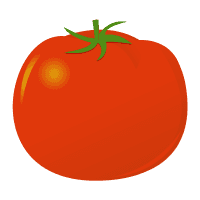Political Science
An awful lot of political science majors are throwing around the word science a little too loosely these days. As if they somehow own it.
Perspective
I was a scientist. With the lab coat and the laboratory notebook, the whole deal. I was designing and carrying out experiments and such. I know intimately what it means to go to work every day at a lab bench. But I have had some vexing arguments with political science majors who end their arguments with “science says” like it was that child’s game named after some long forgotten guy named Simon.
Science has become a political football. Political bloggers recently have called me – someone who actually was a scientist, anti-science because I want more research on vaccines to make them safer.
Science doesn’t say “nothing to see here, move along”. Real scientists should be confident enough of their results that they welcome someone to try and poke holes in their theory or replicate their results. If it is correct, it will withstand the slings and arrows of time. If it is not, it will be embarrassingly recalled, like the admonition to avoid cholesterol was just this week.
To Err is Science.
Scientists are human and therefore their theories can be wrong. That’s about the size of it. When I was a young lab technician working for a major food company, I learned early that there is no such thing as “bad data” There is only data. The reason you may view it as bad is because something went unexpectedly in your experiment, or you chose the wrong parameters to study, or you drew the wrong conclusions. You will always learn something even if it was not what you were expecting. The results were what the results were. Garbage in garbage out is a saying in computer “science”, but there is always a reason for an outcome in a laboratory. Some of the most happiest accidents in history occurred because “chance favored a prepared mind”. If you sweep what happened under the rug, you may have just thrown away the world’s next Eureka moment.
Hiding
Currently there are many studies out there where folks running them hide data they don’t like or that make their previous theory not hold up. For years, people who participated in drug trials didn’t have to be told about a disappointing, or harmful result, only the glowing triumphs that made shareholders happy.
The Conversation Ender
In order to understand science, you need to understand scientists, how they work, and how sometimes get it wrong. What motivates them, and what weaknesses they have from simply being human. You cannot disembody science from scientists by saying “Science Says”. There is no monolithic SCIENCE. You can say, researchers at Johns Hopkins found, or Doctors in Bangladesh observed, or so and so died of measles (or didn’t). Those are the facts. You cannot just say “Science says”. It is a conversation ender, a smug way of declaring yourself all knowing and omniscient. But it is not true.
The Blind Men & the Elephant
Show five different scientists the same data and they will give you five different conclusions on what the data says. Science is the tale of the blind men and the elephant. Interpreted differently depending on what you can see, or the part you are searching for or the thing you get paid to believe.
The Spoils of Research Spoil Research
Unfortunately, in this current funding climate, pure research is long gone. Money does not go to a scientist unless they can almost assure a particular outcome that can be turned into a lucrative product. When a food company pays for a study at a university that regularly receives donations and has renamed their food science building after said company (like Rutgers, ahem), the results of a study paid for by that company will no doubt discover that that company’s products are the new superfood. Same for medical research. There are whole treatises bemoaning the fact that the pharmaceutical industry is unduly influencing the kind of research that gets done (or doesn’t) and the results that get published (or don’t). The latest article on Food in Mother Jones had the Cornell nutrition researcher all but doing a commercial for Taco Bell and diet soda, so much that it aroused the reporter’s suspicions.
Anthropomorphizing Science
You cannot declare science as saying anything. It cannot speak. Scientists can have opinions and they often disagree, or they can have a consensus. I was taught years ago, you don’t cite a study unless you have read it. You also don’t buy the conclusions unless you have examined the study setup, the number of subjects, the control, the methods. For example was the placebo “spiked”? And you make sure that the conclusions where the scientist sums up what they think the results mean, match the actual results. Not every scientist out there is an amazing perfect specimen that is brilliant and flawless, or completely objective. We are human. We err. We have bias.
Game of Telephone
Compounding the mistakes are the media. Some headline writers don’t even bother to actually look at the study or even report it right. Reporters who never even read the study, and just took quotes from people who didn’t even conduct the study, often add their own bias right in at the very end in the newspaper article. I often see articles based on recent studies that found saturated fat is not bad for you declaring you still need to eat MORE whole grains, or less sodium, or low fat dairy. In an article on a study that found that butter is not the villain. To explain the “more whole grains” and lowfat Tourette’s as I call it, read the well researched The Big Fat Surprise by Nina Teicholz or Good Calories Bad Calories by Gary Taubes. It will explain exactly why bad advice touting low-fat diets still exists. Most nutrition reporters can’t help themselves from saying things that were not in the story to begin with. Many stories reporting results that don’t agree with the reporters bias will have a disclaimer either at the end or the beginning “ there’s no reason to change what you are doing, stick to our old advice” that was just proved wrong. Then there is advertising money pressure as well.
The Art of Medicine and the Very Young Science of Nutrition
You need a lot of detective work and a healthy dose of skepticism to read articles on medicine or diet and nutrition. That is why Google does not list them under Science. Either a new bug was discovered or it wasn’t. Either the volcano erupted or it didn’t. Medicine is an art and diagnosing someone takes a modicum of guesswork. When a doctor says something, there is reason you get a second opinion. Doctors used to think washing their hands was ridiculous after performing an autopsy. They used to think smoking was just grand and very healthful for you.
Like the human body, food is complicated. There are hundreds of compounds in each food, coupled with the variability of the actual foods themselves, how they are grown, how they are processed, how they are cooked, and the physiology of the person eating them, and the methods of asking folks what they ate and assuming they didn’t just lie to you, is practicing a black art rather than “science”. The “science” of nutrition is barely over a hundred years old. The experts rarely agree. And the political pressure to just “Do Something!” to be the hero that saves the day is often why health policy happens before the data is all in.
Science
Next time someone declares to you loudly “Science Says”. Don’t argue. They don’t understand what science really is and apparently don’t want to find out. Science isn’t what just one blind wise man says it is. When someone says, “Nothing to see here, move along”, your guard should go up and that is exactly when you need to start asking more questions. Science is questioning everything you know and any answers you think you just got leading to more questions still. Science is fascinating and unknowable, and ginormous, and tiny and wonderful and open, and beautiful and scary and everything you can imagine. It is not bounded, and finite and settled and what just one person says it is. It is discovery. It is curiosity. It is not stern, and finished, and something you can put in a box. It is a question mark. It is wonder. It is “Wonder what happens if?” or Wonder why? It just IS.



